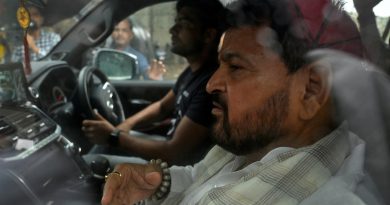In order to celebrate Eid Al-Fitr, the UN chief requests a 3-day ceasefire in Sudan
New York City – The conflicting factions in Sudan have been urged by UN Secretary-General Antonio Guterres to proclaim an immediate three-day truce to coincide with the Eid Al-Fitr celebration, which starts on Friday and concludes the Muslim holy month of Ramadan.
Following a virtual meeting with officials of the African Union, Arab League, UN, and EU, it was announced at a news conference held at the UN’s New York headquarters. According to Guterres, there was broad agreement among all attendees to denounce the current fighting in Sudan and demand an end to hostilities.
I ask for a truce to last for at least three days to honour the celebration of Eid Al-Fitr as an immediate priority, he said.
He noted that a cease-fire would offer civilians who have been imprisoned in combat areas a chance to leave, get medical care, and get food and other necessities.
According to Ahmed Al-Mandhari of the World Health Organisation, fighting between opposing military factions in Khartoum and other areas has resulted in at least 330 fatalities and close to 3,200 injuries. He added that 16 hospitals, nine of which are in Khartoum, are allegedly not operating as a result of attacks and a lack of supplies.
A ceasefire, according to Guterres, would halt hostilities and be a necessary first step towards a lasting end to the conflict. He also stated: “I have been personally engaged in doing everything possible to make it happen.”
Abdel Fattah Al-Burhan, the commander of Sudan’s regular army, and Mohammed Hamdan Dagalo, his deputy and the leader of the Rapid Support Forces, a heavily armed militia that was formerly allied with the army, engaged in combat on 15 April in Khartoum. Both generals seized power in Sudan during a coup in 2021.
The two commanders’ disagreement over the RSF’s intended integration into the regular army, a crucial requirement for a final agreement to restart Sudan’s stalled democratic transition, led to the start of the conflict. Any agreement to put the government back under civilian control must also include the formal civilianization of the army.
A cease-fire agreement, according to Guterres, should be followed by serious talks between the opposing sides to determine a roadmap towards a transfer of power, beginning with the establishment of a civilian administration.
He yelled, “The fighting has to stop right now. “The terrible cost to civilians and the dreadful humanitarian situation deeply worry me.”
According to him, the attack, looting, or theft of humanitarian infrastructure and assets—including cars and warehouses—has made relief efforts in the nation all but impossible.
Targeting of aid workers and resources must stop, according to Guterres. I remind all parties of their responsibilities under international law, particularly the protection of those providing relief to those in need.
He also committed to keep working with all sides to create a ceasefire and a political process to end the violence. He also voiced his great worry for the wellbeing of UN workers in the nation who have been confined in their houses in battle zones.



